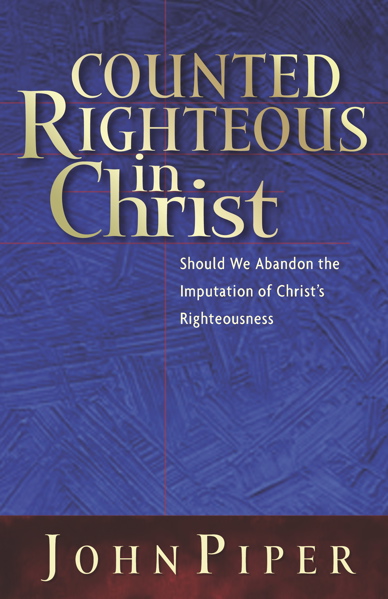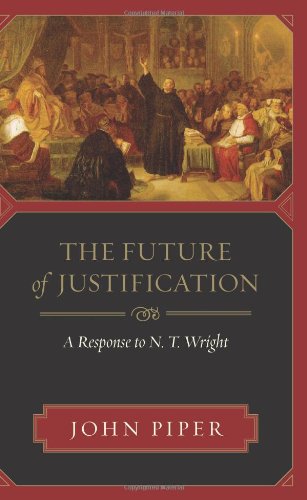Counted Righteous In Christ: Should We Abandon the Imputation of Christ’s Righteousness? (Crossway, 2002)
The Future of Justification: A Response to N.T. Wright (Crossway, 2007)
Preparing lectures on justification I took time to read again these two well-known titles from John Piper. And again I was strengthened and impressed by the helpful service Piper has given the church in these excellent works. Reflecting on them the following traits come to mind.
Contemporary: When it comes to the doctrine of justification the church of course enjoys a rich heritage. But recent years have thrown the doctrine in to question on many levels, and though he writes to uphold the church’s historic understanding it is these questions specifically that Piper has in focus. In his earlier book, Counted Righteous, he takes on the notion, advanced by Robert Gundry, that it is not the righteousness of Christ but faith itself that is counted as righteousness in justification. In The Future of Justification Piper takes on the “New Perspective” view of N.T. Wright. In both books he interacts with these contemporary authors thoroughly and fairly, and in both he seeks not only to discredit their (Gundry’s and Wright’s) distinctive arguments but to establish that it is, in truth, the righteousness of the Lord Jesus Christ that is credited to us in justification.
Exegetical: Piper thinks theologically very well, but he first thinks exegetically. His theological argument is grounded rigorously in the biblical text, and he thus provides a model of theological exegesis for debate.
Clear: Though the various arguments are sometimes either subtle or complex Piper’s approach is readily comprehensible and easy to follow at every point. He represents his opponents accurately and clearly and presents his own case plainly. Piper writes in opposition to biblical scholars, but he does so in a way that certainly any pastor and most any Christian in the pew can listen in.
Precise: The various understandings and arguments entailed in this discussion often demand careful nuance, and consistently Piper exposes the root issue and the critical turning point of the argument, along with their related theological implications. Indeed, his precision is such that he is able to establish his argument in relatively short space. Counted Righteous is scarcely over 100 pages of text, and The Future of Justification under 200 (plus appendices).
Decisive: These works provide both an exegetically well-grounded defense and exposition of the church’s cherished doctrine of justification by imputed righteousness and a compelling convincing refutation of contemporary alternatives. Yes, there is more to read after Piper, yet by themselves these two books provide very useful and reliable understanding of the primary issues involved in this discussion and debate.
Miscellany: Piper’s arguments are consistently lucid and strong, but at certain points he struck me as especially effective. The meaning of the righteousness of God, understanding the nature of imputation in Romans 4, the moral overtones of the so-called “ethnic badges” – on these and other points Piper cuts to the chase with remarkable clarity. And any pastor looking to preach from the primary passages touching the doctrine of justification – Romans 3-6, 8:3-4, 10:4; 1 Corinthians 1:30; 2 Corinthians 5:21; Philippians 3:8-9 – will want to be familiar with Piper’s expositions.
An excellent exegetical grounding of a gospel-vital doctrine, an effective antidote to current misunderstandings of it, and a warm exposition of that which is our only hope.
Fred Zaspel
Buy the books

Counted Righteous in Christ: Should We Abandon the Imputation of Christ's Righteousness

The Future Of Justification: A Response To N. T. Wright